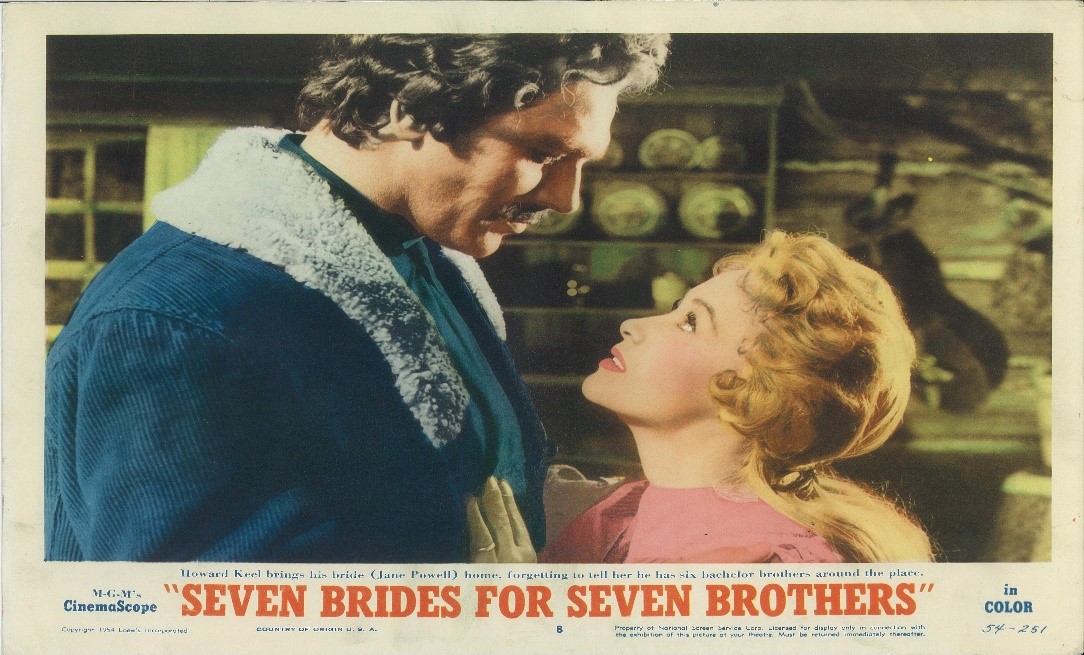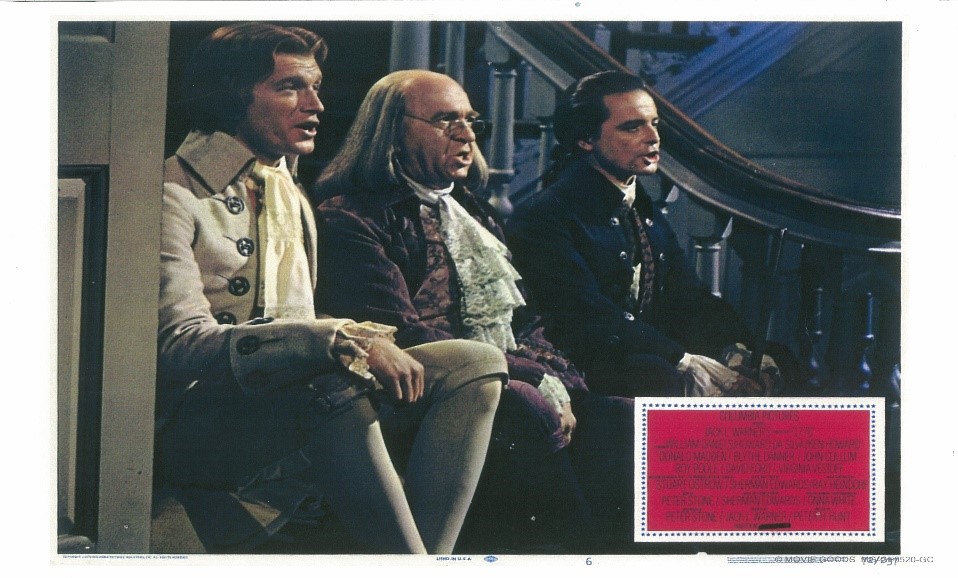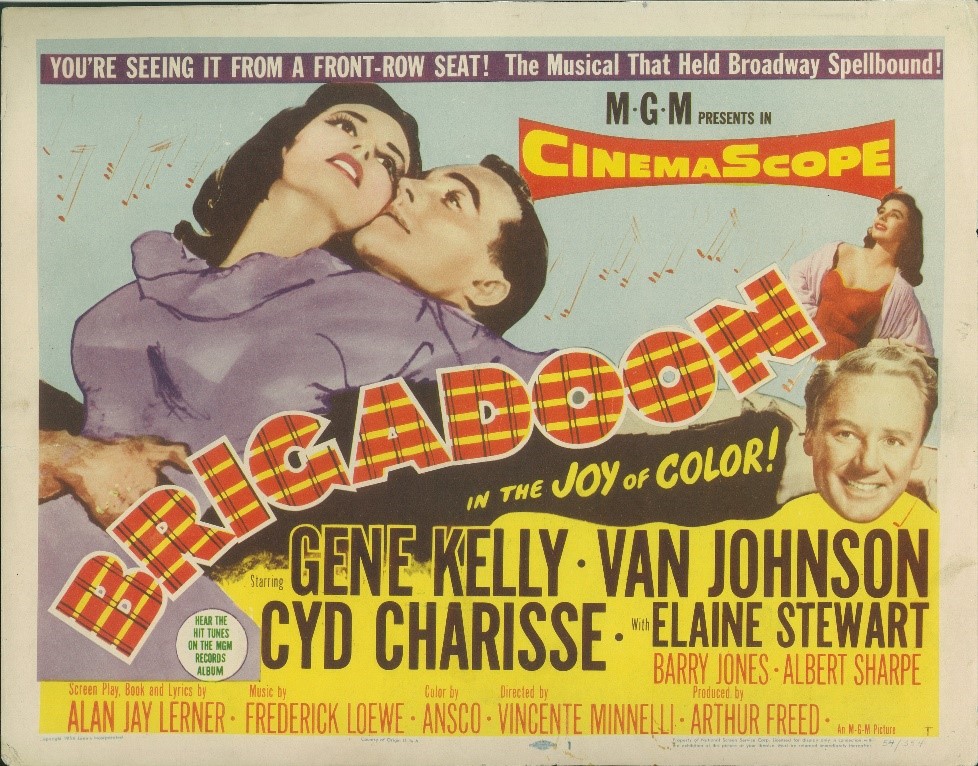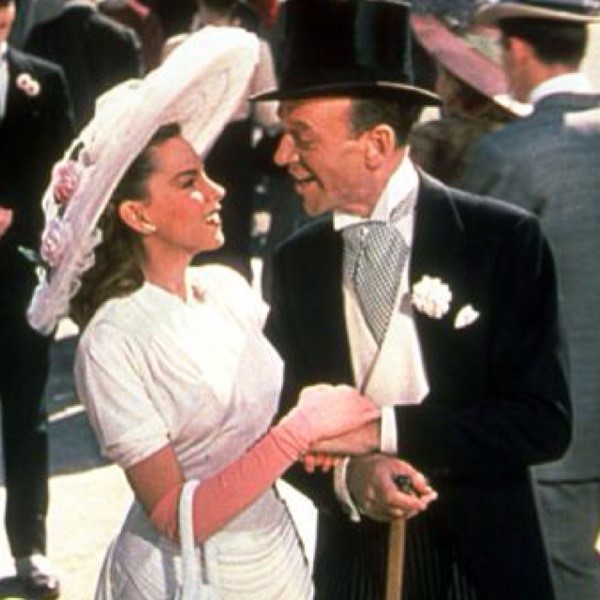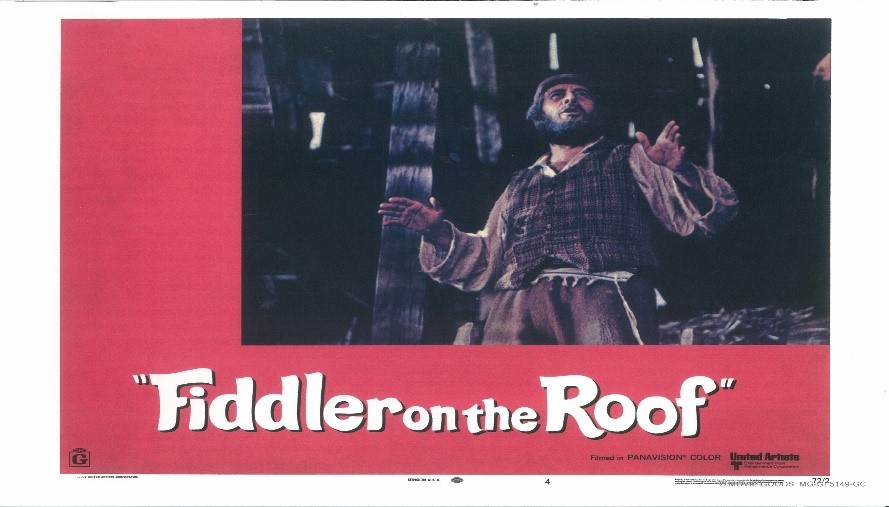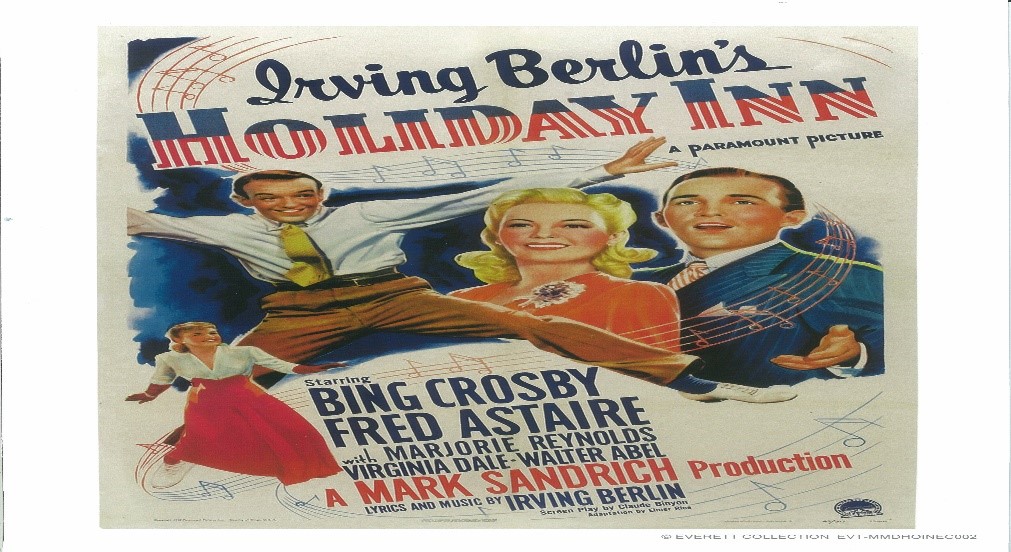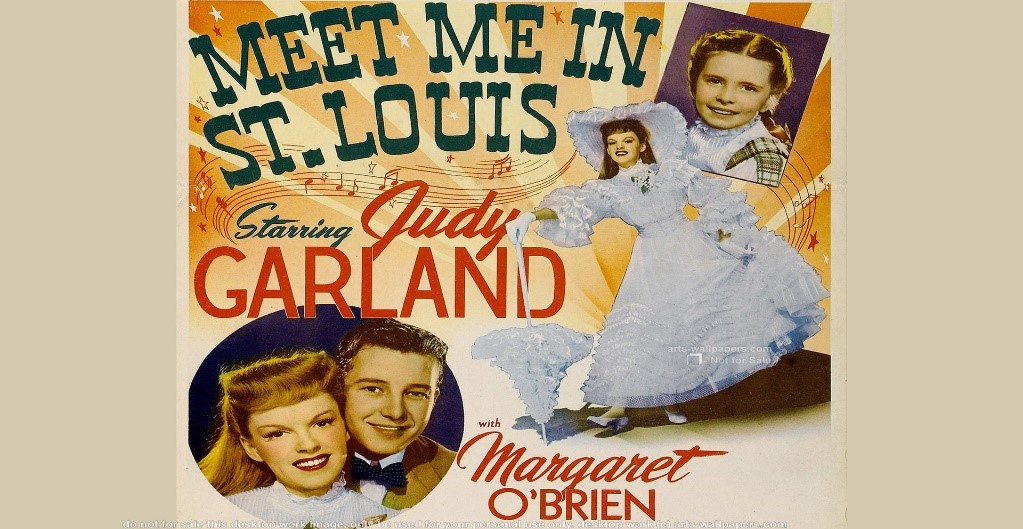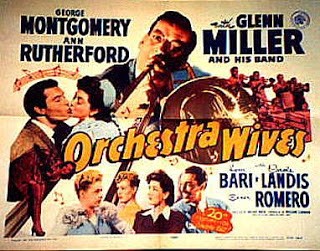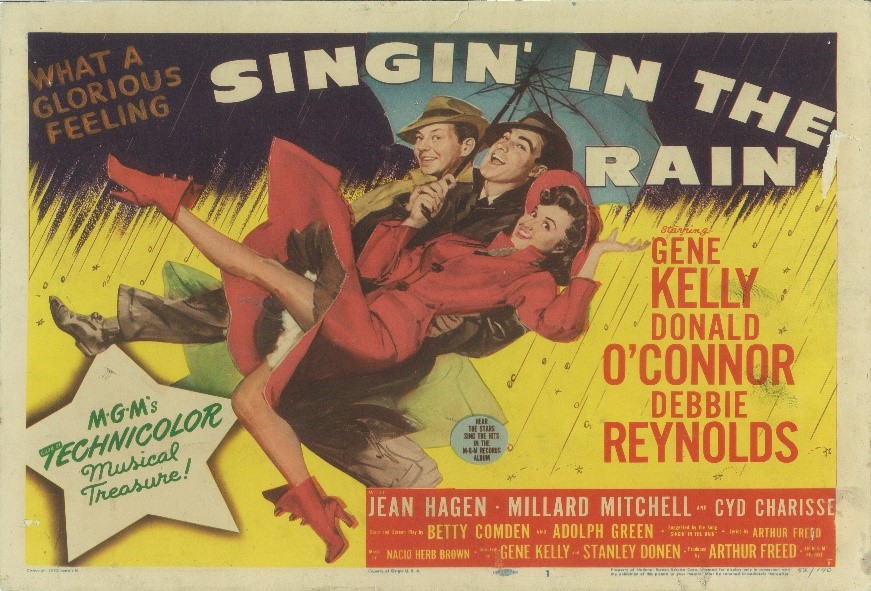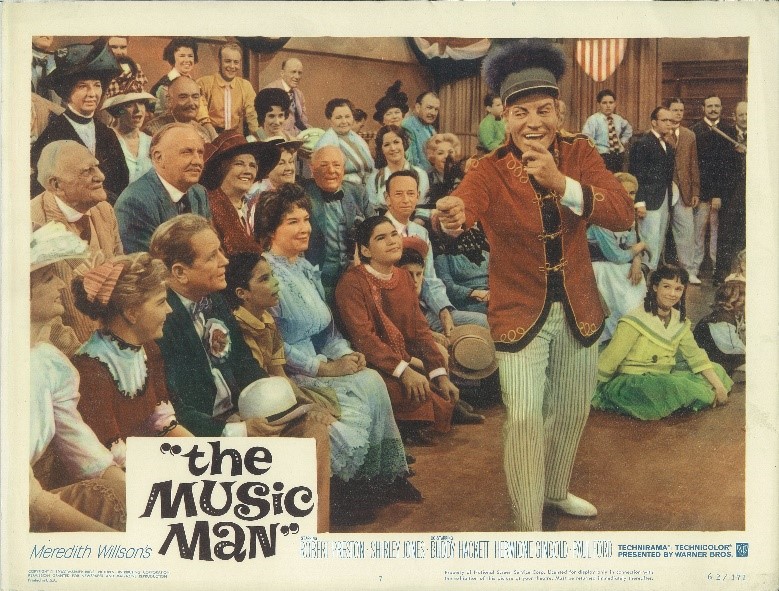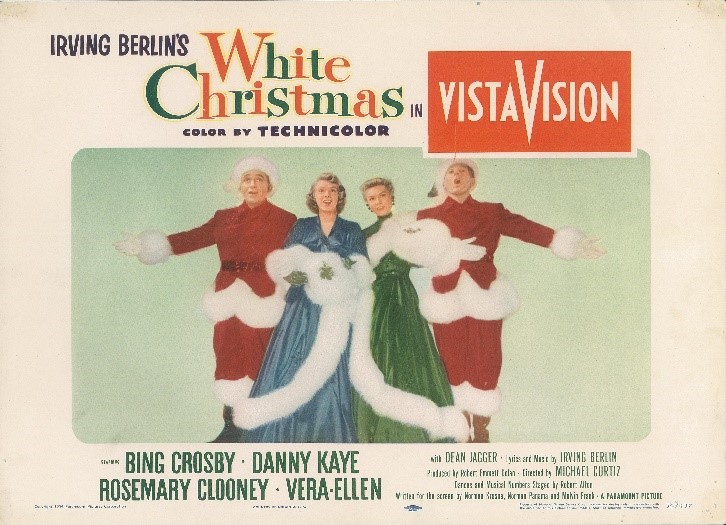Mem'ries light the corners of my mind Misty water-colored mem'ries of the way we were.” (Alan and Marilyn Bergman, Marvin Hamlisch, 1973)
As we move through the guidebook from June weddings to Independence Day picnics and sociables, we find ourselves in River City "I-A-Way" at the turn of the 20th century about to be immersed in some great “water colored memories” of our own.
Welcome to the July 2018 Edition ~~ The Music Man
The Music Man, like many other films in the guidebook (Easter Parade, Meet Me in St Louis, 1776) is a period piece.
It showcases the turn of the 20th century (1905-1910) from the costumes to the set design to the language, ("she’s your Shipoopi”) quite well while allowing us to answer this month’s thought provoking question, “why reminisce?”, in this way:
The classic movie musical (this one in particular), is the perfect subject on which to reminisce. When we watch classic films, we are immediately transported to simpler times. A time when a mother’s biggest worry was getting her daughter married, a boy’s worry was how to get his girl to the candy kitchen, and a man’s goal was inticing the girl, with a little moonlight and a walk to the footbridge.
These simpler times, together with moving pictures of handsome men, pretty women in gorgeous hats and pretty clothes, a score made for sing-a-along (Good Night My Someone, Pick a Little, Talk A Lot, Trouble, 76 Trombones), are the precise elements needed to encourage communication and engagement in your older generation clients and family members. Encourage this time of reminiscing. It knows no error and can be an eye-opening experience. You may discover one of your clients was a traveling salesman, a Rockette, or the child of a Vaudevillian! What great memories to share!
For the baby boomer generation, (those born from 1950 forward), their exposure to the period movie musical may be in recollections of the time they first went to see it on stage or in the theatre. In the 1960's to compete with television, production companies packaged their musical films as roadshows.
"Roadshow films were wide-screen experiences complete with an overture and an intermission. These films included reserved seating in spacious, comfortable theaters as well as higher ticket prices for those seats. Handsomely printed programs and cast soundtracks were for sale in theater lobbies."
Compare and contrast this experience with those of your clients and the changes associated with movie matching today.
For this generation as well as your students, consider discussing the time and the culture of the film. According to Vanessa Theme Ament, the movie musical is often “of its time”. Although many movie musicals are period pieces, (Seven Brides for Seven Brothers, for example, is set in the 1800’s), they offer a comment about the time in which they were made. To paraphrase Ament: Seven Brides comments on the difficulties that men have in conforming in civilized society, after serving in World War II.
I believe a similar comment can be made about The Music Man. It is “of its time.” It was released in 1962. Women working outside the home was a rare. Rarer still was the divorced working woman. Those who were divorced often endured societal shunning. “The practice for communities to shun a person who acted out of the norm of society was practiced. The person who broke the societal rule had no choice but to face and endure the community shunning. It could be and often was brutal.”
Marian and the townspeople mirror this behavior. Marian is a strong, independent woman She does not need a man, to measure her self-worth or to support her. She knows what her life is and is content to provide piano lessons to the town’s children and “counsel and advice to the ladies of River City”. The ladies of River City “ignore (her) council and advice, gossip about her because she reads and recommends “smutty books” to the children and makes “brazen overtures to a man who never had a friend in this town until she came along!” In short, she does not conform to the ideal young lady and therefore is deserves to be shunned.
Spend time here discussing the social and societal ramifications of this behavior:
- Why do some people fear change and others embrace it?
- Why do the townspeople shun Marian for her non-conformist behavior, yet embrace Harold Hill and his nonconformist think system?
- What changes do they see in themselves and their children that allow the parents to “buy” what Harold Hill selling?
- What is he selling? Band uniforms? Instruments? Snake oil masquerading as the new way to approach teaching of music? Or something much more?
You decide as you share a warm summer afternoon and perhaps a “plate of cream” with your clients, students, older generation family members and of course…The Music Man!
Have a Safe and Happy Independence Day!
~~Lori
References:
Yauch, L (27 June 2017). Hello Madam Librarian {Blog Post}. Retrieved from www.moviesandmusic.biz
romneykat (20 December 2016). Women in the Workforce in the Mid-1960 {Blog Post} Retrieved from www.letterpile.com
Ament, V (22 June 2018). TCM Presents Mad About Musicals Online Course. Retrieved from www.canvas.net
Kennedy, M (25 June 2018) as quoted in TCM Presents Mad About Musicals Online Course. Retrieved from www.canvas.net

